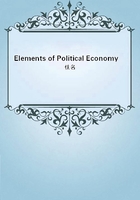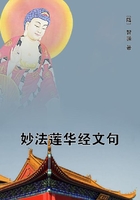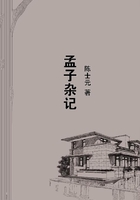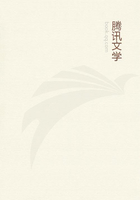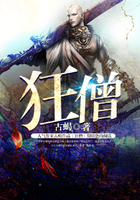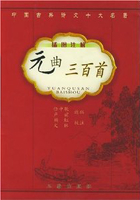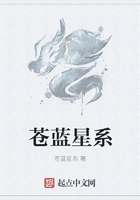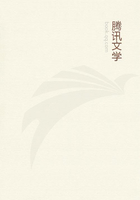Nature of the evidence--Traditions of origin of the world and man--Homeric, Hesiodic and Orphic myths--Later evidence of historians, dramatists, commentators--The Homeric story comparatively pure--The story in Hesiod, and its savage analogues--The explanations of the myth of Cronus, modern and ancient--The Orphic cosmogony--Phanes and Prajapati--Greek myths of the origin of man--Their savage analogues.
The authorities for Greek cosmogonic myth are extremely various in date, character and value. The most ancient texts are the Iliad and the poems attributed to Hesiod. The Iliad, whatever its date, whatever the place of its composition, was intended to please a noble class of warriors. The Hesiodic poems, at least the Theogony, have clearly a didactic aim, and the intention of presenting a systematic and orderly account of the divine genealogies. To neither would we willingly attribute a date much later than the ninth century of our era, but the question of the dates of all the epic and Hesiodic poems, and even of their various parts, is greatly disputed among scholars. Yet it is nowhere denied that, however late the present form of some of the poems may be, they contain ideas of extreme antiquity. Although the Homeric poems are usually considered, on the whole, more ancient than those attributed to Hesiod, it is a fact worth remembering that the notions of the origin of things in Hesiod are much more savage and (as we hold) much more archaic than the opinions of Homer.
Grote assigns his Theogony to circ. 750 A.D. The Thegony was taught to boys in Greece, much as the Church Catechism and Bible are taught in England; Aeschines in Ctesiph., 135, p. 73.
Libanius, 400 years after Christ (i. 502-509, iv. 874).
While Hesiod offers a complete theogony or genealogy of deities and heroes, Homer gives no more than hints and allusions to the stormy past of the gods. It is clear, however, that his conception of that past differed considerably from the traditions of Hesiod.
However we explain it, the Homeric mythology (though itself repugnant to the philosophers from Xenophanes downwards) is much more mild, pure and humane than the mythology either of Hesiod or of our other Greek authorities. Some may imagine that Homer retains a clearer and less corrupted memory than Hesiod possessed of an original and authentic "divine tradition". Others may find in Homer's comparative purity a proof of the later date of his epics in their present form, or may even proclaim that Homer was a kind of Cervantes, who wished to laugh the gods away. There is no conceivable or inconceivable theory about Homer that has not its advocates. For ourselves, we hold that the divine genius of Homer, though working in an age distant rather than "early," selected instinctively the purer mythical materials, and burned away the coarser dross of antique legend, leaving little but the gold which is comparatively refined.
We must remember that it does not follow that any mythical ideas are later than the age of Homer because we first meet them in poems of a later date. We have already seen that though the Brahmanas are much later in date of compilation than the Veda, yet a tradition which we first find in the Brahmanas may be older than the time at which the Veda was compiled. In the same way, as Mr.
Max Muller observes, "we know that certain ideas which we find in later writers do not occur in Homer. But it does not follow at all that such ideas are all of later growth or possess a secondary character. One myth may have belonged to one tribe; one god may have had his chief worship in one locality; and our becoming acquainted with these through a later poet does not in the least prove their later origin."
Hibbert Lectures, pp. 130, 131.
After Homer and Hesiod, our most ancient authorities for Greek cosmogonic myths are probably the so-called Orphic fragments.
Concerning the dates and the manner of growth of these poems volumes of erudition have been compiled. As Homer is silent about Orpheus (in spite of the position which the mythical Thracian bard acquired as the inventor of letters and magic and the father of the mysteries), it has been usual to regard the Orphic ideas as of late introduction. We may agree with Grote and Lobeck that these ideas and the ascetic "Orphic mode of life" first acquired importance in Greece about the time of Epimenides, or, roughly speaking, between 620 and 500 B.C. That age certainly witnessed a curious growth of superstitious fears and of mystic ceremonies intended to mitigate spiritual terrors. Greece was becoming more intimately acquainted with Egypt and with Asia, and was comparing her own religion with the beliefs and rites of other peoples. The times and the minds of men were being prepared for the clear philosophies that soon "on Argive heights divinely sang". Just as, when the old world was about to accept Christianity, a deluge of Oriental and barbaric superstitions swept across men's minds, so immediately before the dawn of Greek philosophy there came an irruption of mysticism and of spiritual fears. We may suppose that the Orphic poems were collected, edited and probably interpolated, in this dark hour of Greece. "To me," says Lobeck, "it appears that the verses may be referred to the age of Onomacritus, an age curious in the writings of ancient poets, and attracted by the allurements of mystic religions." The style of the surviving fragments is sufficiently pure and epic; the strange unheard of myths are unlike those which the Alexandrian poets drew from fountains long lost.
But how much in the Orphic myths is imported from Asia or Egypt, how much is the invention of literary forgers like Onomacritus, how much should be regarded as the first guesses of the physical poet-philosophers, and how much is truly ancient popular legend recast in literary form, it is impossible with certainty to determine.
Lobeck, Aglaophamus, i. 317; Grote, iii. 86.
Aglaophamus, i. 611.

